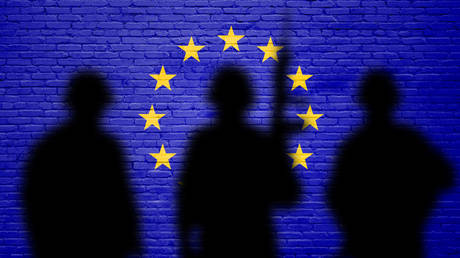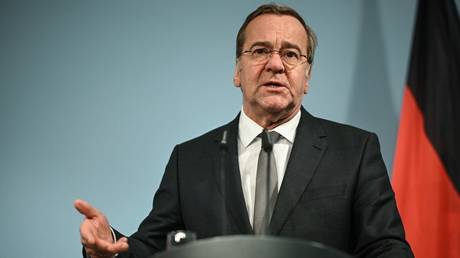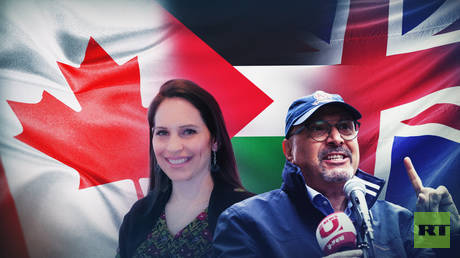
RT speaks with former Palestinian ambassadors to the UK and Canada about the motives behind four Western capital’s historic decision
For the first time in decades, major Western powers traditionally aligned with Israel have broken ranks. On Sunday, the United Kingdom, Australia, Canada, and Portugal formally recognized the State of Palestine, joining 147 of the 193 United Nations member states that had already done so. It’s a watershed moment. After years of near-automatic support for West Jerusalem, Western capitals are now siding with the overwhelming majority of the international community.
Israel’s reaction was swift. Prime Minister Benjamin Netanyahu vowed that a Palestinian state “will not happen”.
“I have a clear message to those leaders who recognize a Palestinian state after the terrible massacre of October 7: you are giving a huge reward to terror. And I have another message for you:
Other members of his coalition issued similar statements. Some, including National Security Minister Itamar Ben-Gvir and Finance Minister Bezalel Smotrich, even suggested “applying sovereignty” over the West Bank – in other words, annexation.
But for many Palestinians the shift in the policy of Western capitals was a step in the right direction.
To understand the reasoning behind the recognitions and their impact, RT spoke to Palestinian Ambassador to Italy, and former envoy to Canada, Mona Abuamara, and Manuel Hassassian, former ambassador to the UK. Here’s what they had to say:
RT: Why did the Prime Minister take this position on recognizing Palestine?
Manuel Hassassian: The Prime Minister had little choice, as millions of British people support the Palestinian cause. Since the Labour Party is in power, they wanted to achieve a milestone regarding Palestine. Additionally, members of Parliament pressured the government to act, especially after several European countries, led by France under Emmanuel Macron, have already done so.
[Yet], this recognition is long overdue. Since the Balfour Declaration of 1917, which facilitated Jewish immigration to Palestine, Britain has delayed addressing the injustice faced by the Palestinians. It took 108 years for them to recognize the need for a Palestinian state.
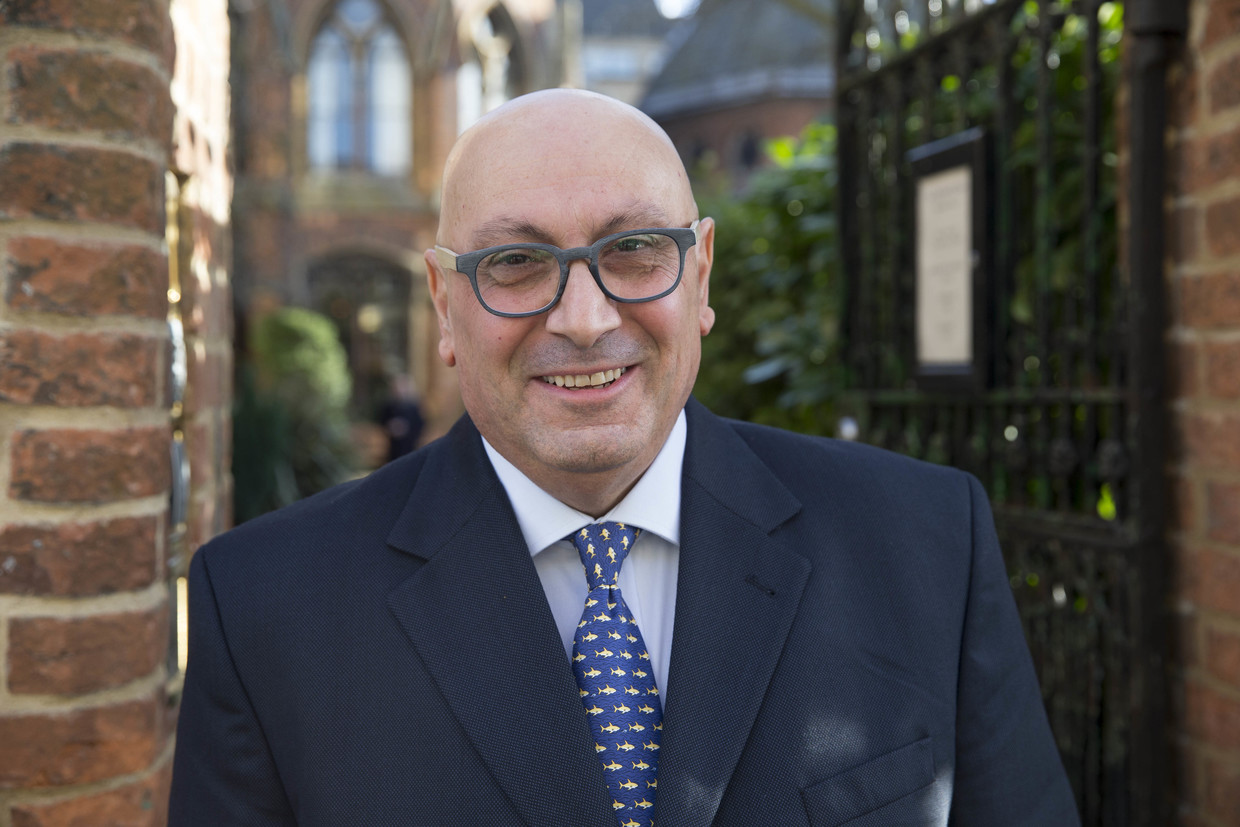
© Global Look Press / I-Images
This decision was influenced by Israel’s failure to meet ceasefire conditions, withdraw from Gaza, and allow humanitarian aid into the Strip. Still, the move is largely symbolic, as Israel remains in control [over the territory]with US support.
Mona Abuamara: Canada made the decision some time ago but delayed the announcement due to both international and domestic factors. Initially, Canada was aligned politically with the US on major foreign policy issues, while strong domestic pressure from the Zionist lobby and pro-Israeli organizations discouraged the government from moving forward.
Now, circumstances have changed. Internationally, the deterioration in Canada–US relations pushed Canada to adopt a more independent stance, aligning instead with European countries that support a rules-based international order. Domestically, the environment has shifted enough to allow the government to act. Recognizing Palestine demonstrates Canada’s commitment to the two-state solution – moving from words to concrete action.
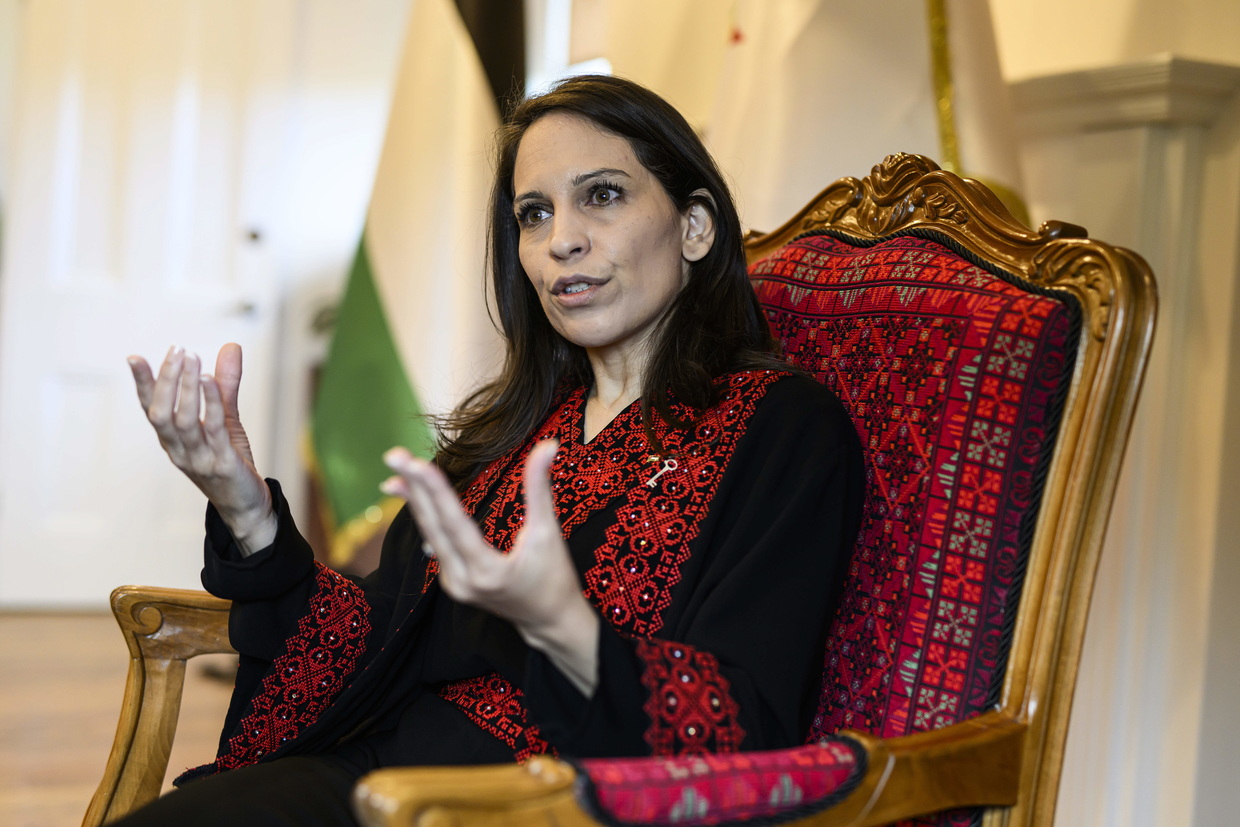
© Global Look Press / Justin Tang
RT: How helpful is this recognition by the UK/Canada to the Palestinian cause?
Manuel Hassassian: The recognition is mostly symbolic. It doesn’t change the facts on the ground, since Israel remains an occupying force and a colonial-settler movement supported by the international community, especially the United States.
However, it does expose Israel’s true intentions and strengthens the principle of Palestinian self-determination, which is a universal right. Moves by France, Spain, the UK, and others create diplomatic pressure on Israel and the US.
Mona Abuamara: Recognition at this moment sends a strong message to Israel and its current government that their actions – genocide, annexation, ethnic cleansing, and apartheid – are unacceptable to the world. It rejects Israel’s claims over Palestinian land and seeks to salvage the two-state solution before it disappears.
Canada’s recognition is especially significant because of its global standing. Ideally, Canada could have led such recognition earlier, potentially triggering a domino effect sooner. Nevertheless, joining the group of countries recognizing Palestine now strengthens international solidarity and places Canada on what many view as the right side of history.
RT: Netanyahu says these recognitions are driven by internal pressure and the growing Muslim population. How grounded are these claims?
Manuel Hassassian: This has nothing to do with Muslims. The real issue is Israel’s policies – acts of killing, genocide, and devastation against Palestinians – which have raised global awareness.
The extreme policies of Netanyahu’s government, including food blockades and collective punishment, have convinced the international community that recognition of Palestine and ending the occupation are necessary steps toward a two-state solution.
Mona Abuamara: Netanyahu’s claims are unfounded and rooted in racism. The Palestinian struggle is not religious – it is about freedom, sovereignty, and liberation from oppression.
Netanyahu uses religion to frame the conflict as a Muslim–Jewish issue, hiding behind Judaism and the Jewish community to justify his policies. He also ignores that support for Palestine in demonstrations worldwide comes from a broad base, including many non-immigrants, who oppose genocide, forced displacement, and apartheid. His rhetoric is a way to deflect from accountability for war crimes.
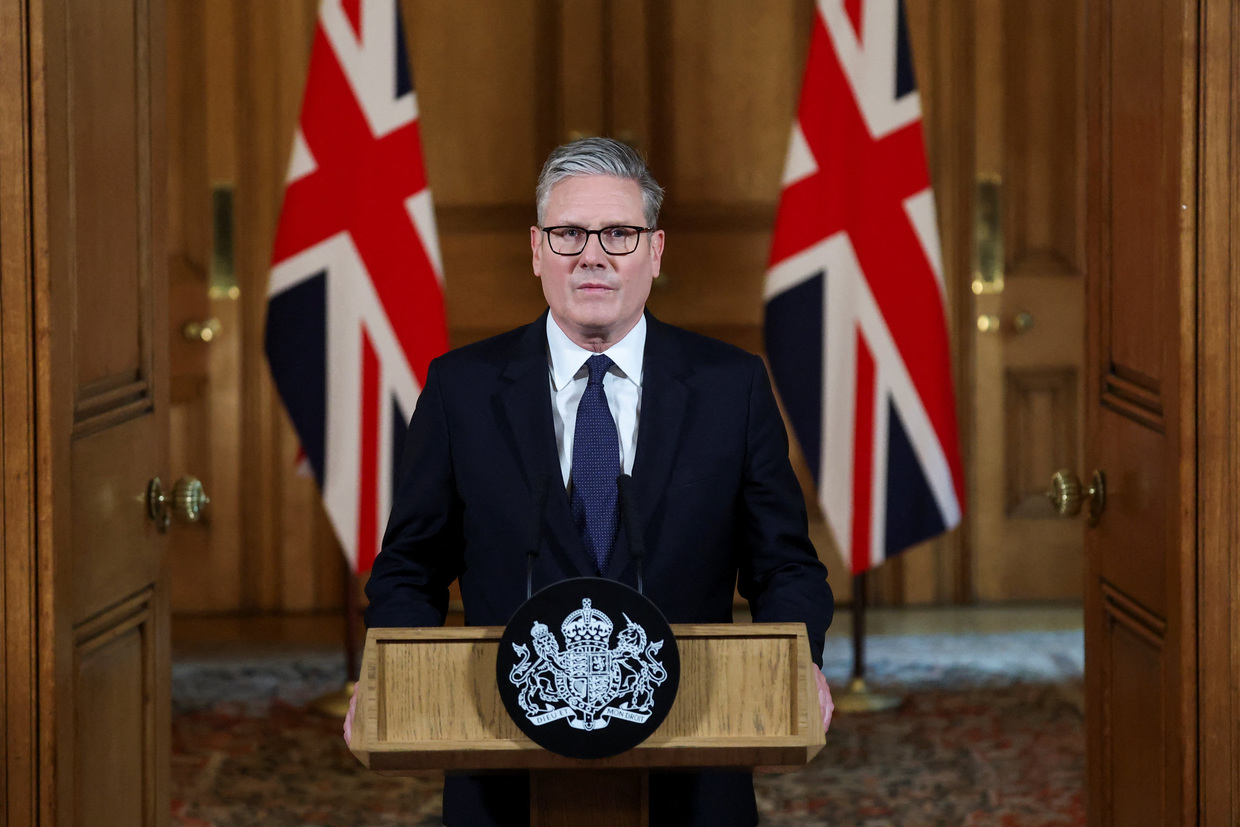
© Toby Melville – WPA Pool / Getty Images
RT: Although many states recognize Palestine, why do Palestinians still lack independence on the ground?
Manuel Hassassian: Because Israel’s military occupation continues. In the West Bank and Jerusalem, 96 checkpoints have fragmented Palestinian communities, preventing geographic continuity.
The Israeli ‘E1 plan’ for settlements [that aimed at connecting Jerusalem to Maale Adumim establishing thousands of residential units that would house some 70,000 residents – RT]threatens to divide the north and south of Palestine, making a viable two-state solution nearly impossible.
The envisioned Palestinian state, based on 1967 borders, includes the West Bank, Gaza, and East Jerusalem, but settlement expansion undermines this.
Mona Abuamara: Palestine still doesn’t have its independence on the ground because with this recognition, there are ethical, political and legal responsibilities that countries would align themselves with.
In the past, for example, Canada refused to back Palestine’s cases in the International Criminal Court or the International Court of Justice claiming Palestine was not a state – now that argument is gone.
So it can move to a more supportive position for the rights of the Palestinian people and the state of Palestine, just as it would towards any other occupied state or a state that war crimes are being committed in.
RT: What should the international community do to make Palestinian independence a reality?
Manuel Hassassian: The world must take a firm stand by imposing economic sanctions on Israel, revoking trade agreements, withdrawing diplomats, enforcing arms embargoes, and even restricting air travel for Israeli airlines.
Such measures would pressure Israel to accept the two-state solution, since military options cannot resolve the conflict.
Mona Abuamara: Recognition alone is not enough. The international community must also take practical steps: impose sanctions on Israel; suspend or revoke trade agreements benefiting settlements; cut diplomatic relations if Israel continues to commit genocide and starvation policies; and ensure settlers and settlements gain no advantages from international agreements.
Only by using these tools – not just symbolic recognition – can the world pressure Israel to end its occupation, oppression, and settlement expansion, and help Palestinians achieve true sovereignty and independence.
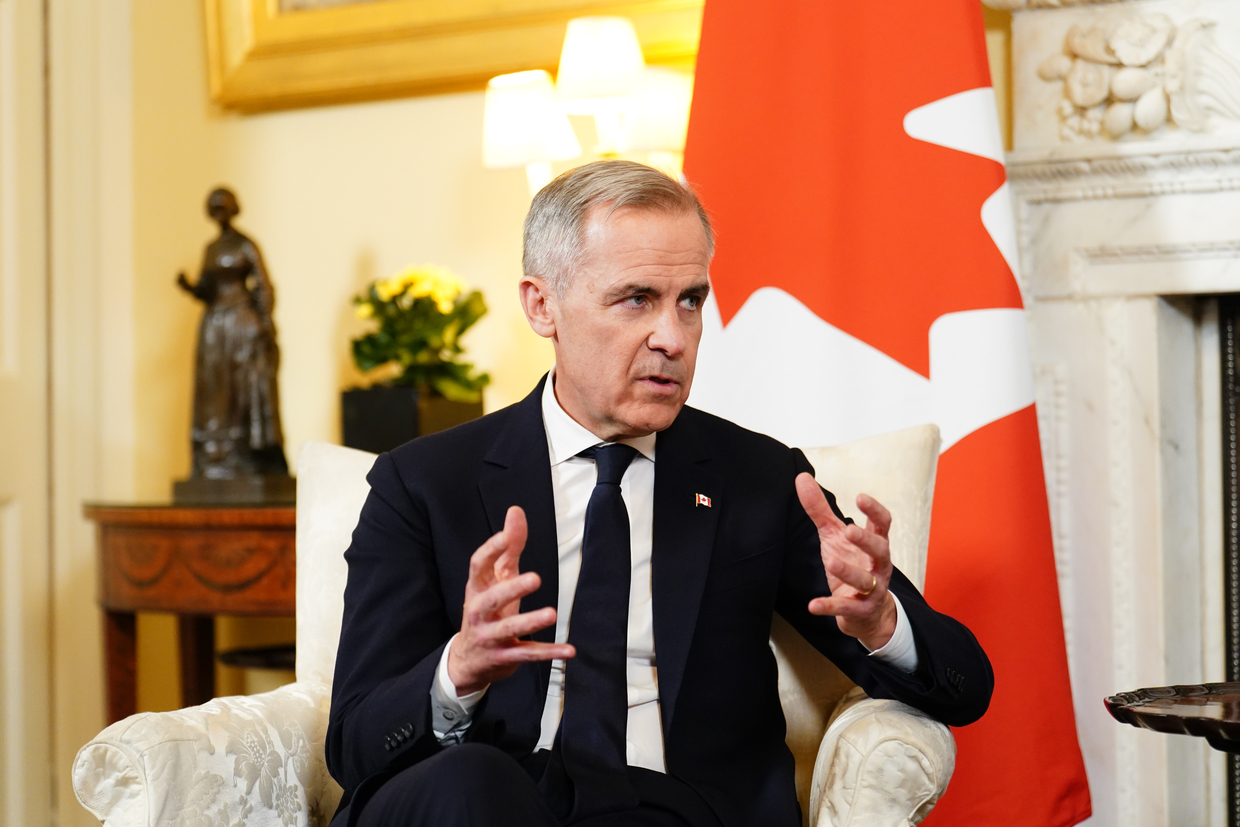
© Jordan Pettitt – WPA Pool / Getty Images
What comes next?
Prime Minister Netanyahu is soon heading to the United States, where he is expected to address the United Nations General Assembly and then meet with President Donald Trump.
Observers say that when he returns, and after he gets an American blessing, he may announce the formal annexation of parts of the West Bank – a move that would directly challenge the international momentum behind Palestinian recognition.
With four Western powers joining more than 140 nations already recognising Palestine, and more states promising to follow suit, the stakes in the coming weeks could not be higher.


